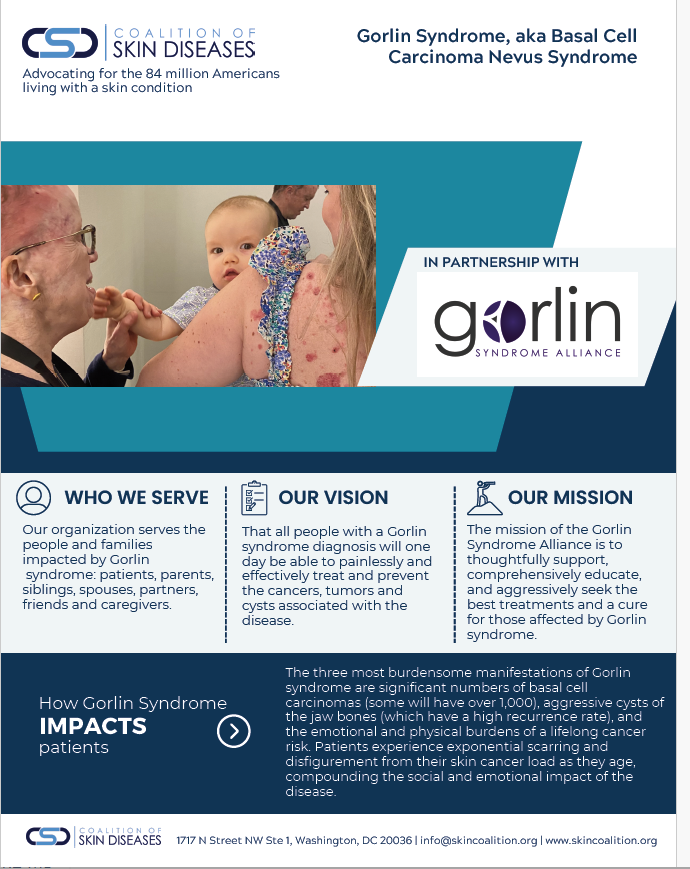Gorlin Syndrome (GS) aka Basal Cell Carcinoma Nevus Syndrome is a rare disorder that can affect multiple organ systems in the human body. This syndrome is caused by a genetic mutation of the tumor suppressor gene (PTCH) found in the hedgehog signaling pathway. The mutation is either inherited or the result of a spontaneous mutation at conception. Approximately 75% of affected persons today have a parent or relative with BCCNS.
Affected individuals can have a wide variety of manifestations, the most common being basal cell carcinoma (BCC). Other manifestations include jaw cysts (keratocystic odontogenic tumors, or KCOTS), pits of the palms and soles, enlarged skulls and prominent foreheads, benign skin cysts, calcifications in the midline of the brain, rib abnormalities, and spina bifida of the thoracic and cervical spine. Additional secondary manifestations that may occur include ovarian cysts, hydrocephalus, cleft lip and palate, cardiac fibroma, boney abnormalities of the hands and feet. There are a number of other issues associated with Gorlin syndrome that affect a smaller population in our community.

Individual variability affects the frequency of BCCs, resulting in some individuals developing only a few lesions and others having thousands over a lifetime. Generally, this necessitates constant, repeated surveillance, frequent doctor visits, and countless surgeries. In addition to the medical complications, individuals with GS may be subject to psychological issues including fear, anxiety, frustration and depression due to the many burdens of the syndrome and their physical appearance.
A GS diagnosis can often be made after exams of several parts of the body by doctors experienced with the manifestations of the disorder. The following information may be useful in diagnosing the condition.
The Gorlin Syndrome Alliance thoughtfully supports, comprehensively educates and aggressively seeks treatments and a cure for Gorlin Syndrome, its manifestations and sporadic BCCs. The organization has a strong desire to build upon and strengthen our alliance between patients, medical professionals, the pharmacological industry, professional staff and lay leadership while continuing our commitment to provide strong emotional and informational support to our members.
The Alliance partners with medical professionals and the pharmaceutical industry to promote clinical trials and research studies, maintains an accurate Physician Referral Listing, and represent the patient’s voice through participation in advisory committees and focus groups.
Contact the Gorlin Syndrome Alliance by visiting www.gorlinsyndrome.org or emailing [email protected].

Connect with your federal legislators to speak up for dermatological conditions today.